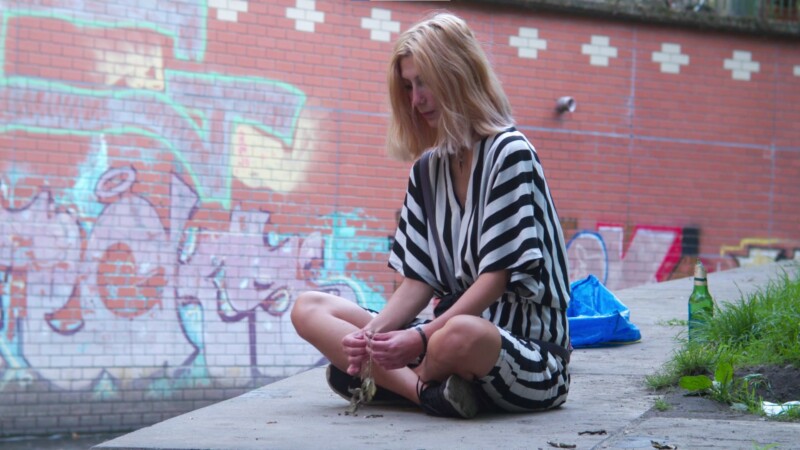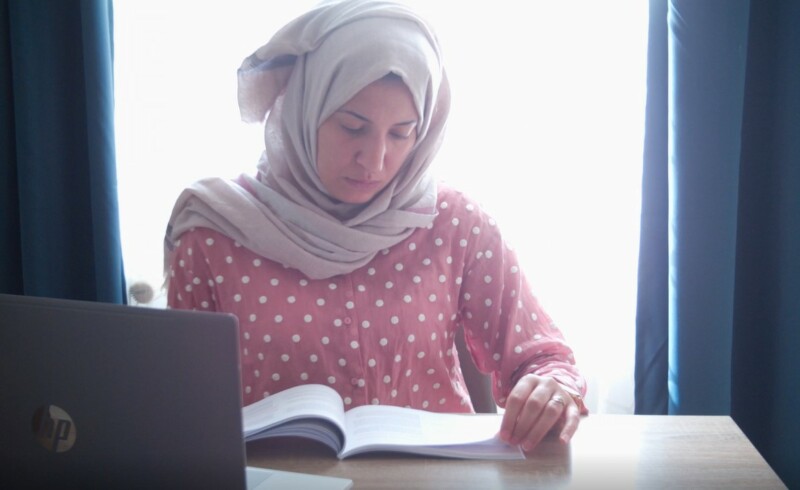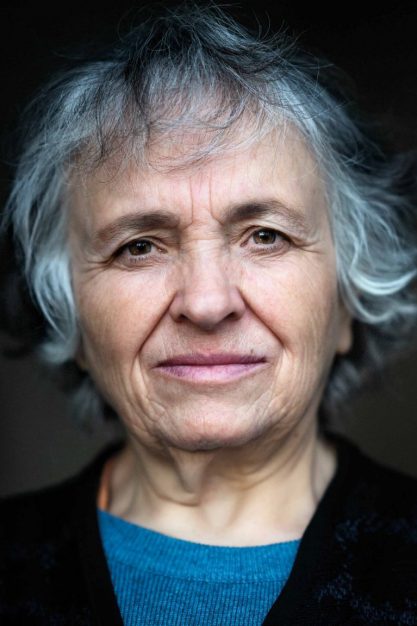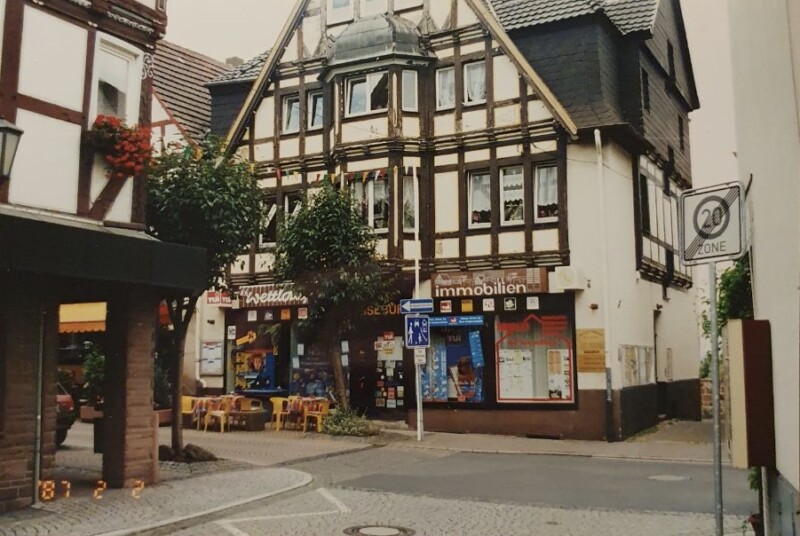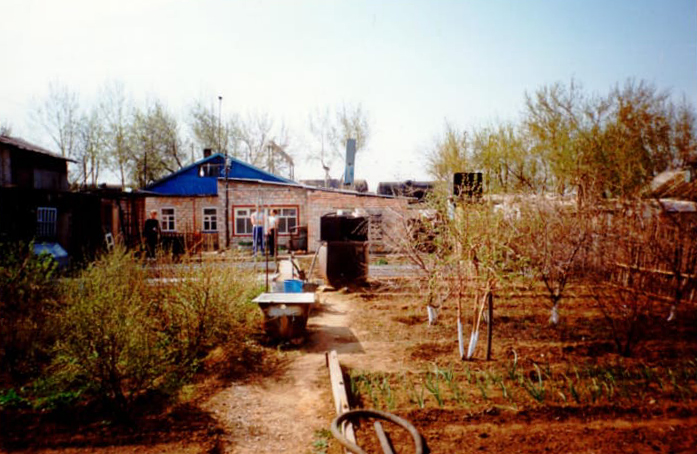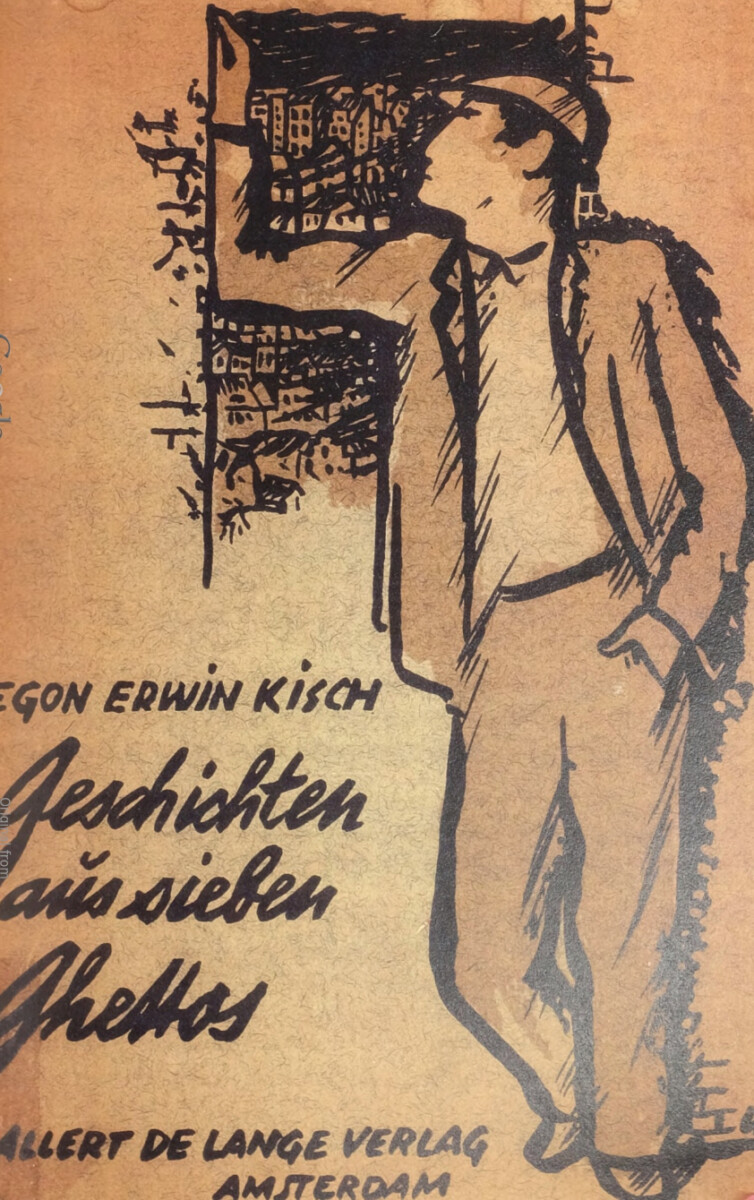Ich erleb das tatsächlich immer noch so, als ob das was Besonderes ist – hab ich immer das Gefühl. Ich weiß gar nicht genau, warum das so sein könnte, aber irgendwie hab ich das Gefühl, dass das Judentum was ist, was nicht normal in der Gesellschaft ist, was irgendwie so ein bisschen weiterhin für sich lebt, wie’s halt auch früher war. Die haben halt irgendwie ihre Synagogen und man weiß gar nicht so genau, was da drin passiert. Weil in der Schule zum Beispiel sind wir früher mal in eine Moschee gegangen und haben uns das angeschaut, aber eine Synagoge haben wir uns nicht angeschaut und dann ist es halt so ein Geheimclub und so richtig weiß man nicht, was da passiert. Und der Umgang von Medien mit dem Judentum ist für mich eigentlich nur mit antisemitischen Übergriffen verbunden. Also man weiß nie irgendwas über die Feste, oder halt übers Judentum. Auf die Feste komm ich grad, weil man zum Beispiel auch erzählen könnte, dass heute das und das jüdische Fest ist. Also dass man auch darüber sprechen könnte und nicht nur, dass dort ein Rabbi verprügelt worden ist und hier ein jüdischer Friedhof beschmiert worden ist halt. […]
Ich glaub, es wäre schöner, wenn man mehr wüsste, also nicht nur über das Judentum, auch mehr über den Islam und mehr über – weiß ich nicht – über Buddhismus oder sowas. Und wenn man nicht nur die großen christlichen Feiertage ankündigen würde, sondern dass man vielleicht auch, also auch wenn man sie nicht als gesetzliche Feiertage einführt, aber dass man das zumindestens in der Schule mal erwähnt, was es für andere Feiertage gibt und dass man halt ein bisschen weltoffener ist. Ich glaube, es ist vor allem wichtig, das Kindern beizubringen, weil ich nicht genau weiß, ob man bei Erwachsenen noch irgendwas erreicht. Aber bei Kindern, dass die damit aufwachsen, dass es nicht nur das Christentum gibt, dass es halt auch andere Religionen und andere Glaubensgemeinschaften und andere Länder gibt. […
Ich glaube halt auch, weil zumindestens in Deutschland da noch eventuell auch so eine Schuld mitschwingt, oder so ein schlechtes Gefühl zumindestens, aus der NS[Nationalsozialismus]-Zeit. Dass was passiert ist, das „die Deutschen“ „den Juden“ angetan haben und deshalb darf man jetzt gar nichts über die sagen, weil dann wird man vielleicht sofort in eine Richtung geschoben, in die man nicht geschoben werden will. Vielleicht wird auch so wenig darüber informiert, weil die Menschen halt nicht wissen, wie man was sagt, das nicht falsch verstanden wird. Ich weiß es nicht genau. Ich glaube, ich könnte mir deswegen vorstellen, dass es was ist, was als besonders gilt und als komisch gilt, weil man halt einfach zu wenig darüber weiß. Weil zum Beispiel in Russland ist das ein ganz anderer Umgang. In Russland wird super viel übers Judentum gesprochen, es gibt super viele Witze über die Juden und Judentum und irgendwie ist das auch viel mehr in der Gesellschaft verankert, dass man da drüber spricht, dass es nicht irgendwie komisch ist zu sagen, die Nachbarin ist Jüdin. Das ist jetzt nichts was man flüstert, man sagt es halt ganz normal. […]
Gefühlt gehört das Judentum nicht wirklich zu Deutschland dazu. […] In Berlin gibt es ja auf jeden Fall ein offenes jüdisches Leben auf der Straße, man sieht Menschen mit Kippa, man sieht im Prenzlauer Berg die Kinder aus der jüdischen Schule laufen mit diesen Fitzelchen da unter der Schuluniform raus lunzen und wenn man diese Signale lesen kann, dann weiß man, dass es jüdisches Leben in Deutschland gibt. Aber ich glaube halt in vielen anderen Städten, wo es keine großen Gemeinden gibt oder wo die Menschen nicht offen jüdisch rumlaufen, weiß man vielleicht auch gar nicht, dass es jüdisches Leben gibt, wenn man sich nicht informiert. Aber ich hab irgendwie trotzdem das Gefühl, dass es so eine Parallelgesellschaft ist, die nicht in Deutschland angekommen ist und auch – also vielleicht ist es auch ein sehr subjektives Empfinden – aber ich hab das Gefühl, dass das jüdische Leben aus Israelis und Russen in Deutschland besteht, aber nicht aus deutschen Juden sozusagen. Also ich kenne niemand Deutsches, der jüdisch ist, ich kenne nur russische Menschen oder Israelis, die hergezogen sind.
I actually still experience it as if it’s something special – I always have that feeling. I don’t know exactly why that might be, but somehow I have the feeling that Judaism is something that is not normal in society, something that somehow continues to live a bit on its own, just as it was in the past. They somehow have their synagogues, and you don’t really know what happens inside. Because in school, for example, we would go to a mosque and look at it, but we didn’t look at a synagogue, and then it’s just a secret club and you don’t really know what’s happening there. And for me, the way the media deals with Judaism is really only connected to anti-Semitic attacks. So you never know anything about the holidays or about Judaism. I’m just thinking about the holidays because, for example, one could also tell that today is this or that Jewish holiday. So one could also talk about this and not only that a rabbi has been beaten up here and a Jewish cemetery has been smeared there. […]
I think it would be nicer if we knew more, not only about Judaism, but also more about Islam and more about – I don’t know – about Buddhism or something. And if one would not only announce the big Christian holidays, but that people perhaps also – that is, even if one does not introduce them as legal holidays – but that one at least mentions in school what other holidays there are and that people are just a bit more open-minded. I think it’s especially important to teach that to children, because I don’t know if you can achieve anything with adults. But with children, that they grow up with the fact that there is not only Christianity, but that there are also other religions and other faith communities and other countries. […]
I also believe that, at least in Germany, there may still be some guilt, or at least a bad feeling, from the Nazi era. That something happened that “the Germans” did to “the Jews” and that’s why you can’t say anything about them now, because then you might immediately be pushed in a direction that you don’t want to be pushed to. Perhaps there is so little information because people don’t know how to say things without being misunderstood. I don’t know exactly. I think that’s why I could imagine that it’s something that’s considered special and weird, because people just don’t know enough about it. Because in Russia, for example, it’s a completely different way of dealing with things. In Russia, there is a lot of talk about Judaism, there are a lot of jokes about Jews and Judaism, and somehow it is much more anchored in society that people talk about it, that it is not somehow funny to say that your neighbor is Jewish. It’s not something you whisper, you just say it normally. […]
It feels like Judaism is not really a part of Germany. […] In Berlin there is of course an open Jewish life on the street, you see people with Kippa, in Prenzlauer Berg see the children running out of the Jewish school with these little ribbons under the school uniform and if you can read these signals, then you know that there is Jewish life in Germany. But I think in many other cities, where there are no big communities or where people don’t walk around Jewish openly, you might not even know that there is Jewish life if you don’t inform yourself. But somehow I still have the feeling that it is a parallel society that has not arrived in Germany and also – so maybe it is also a very subjective feeling – but I have the feeling that Jewish life consists of Israelis and Russians in Germany, but not of German Jews, so to speak. I don’t know any German who is Jewish, I only know Russian people or Israelis who moved here.
K. moved to Germany from Russia as a child with her family as part of a contingent program for Jewish people. Here, she talks about her personal perspective on society’s view of Jewish life in Germany. Being Jewish feels to her like something that is not normal; something that is always marked as “special”. According to K., the reasons for this can be found not only in Germany’s historical past, but also in the fact that society in general knows far too little about different religions.
The interview was conducted, analysed and translated by Johanna Sünnemann as part of a cooperation between Freie Universität Berlin and the We Refugees Archive.
Under the supervision of Prof. Schirin Amir-Moazami, students in the seminar “Narratives of Refugees in the Light of Border Regime Studies” (winter term 2020/21) worked on critical methods of qualitative social research as well as literary and scientific texts on the topic of border regimes.
Border regime studies primarily focus on the political, economic and legal conditions that produce migration and borders as social phenomena in the first place.
In cooperation with the We Refugees Archive, the seminar participants conducted interviews with refugees about their everyday experiences in Germany or wrote articles on the common topics of the seminar and the archive.
